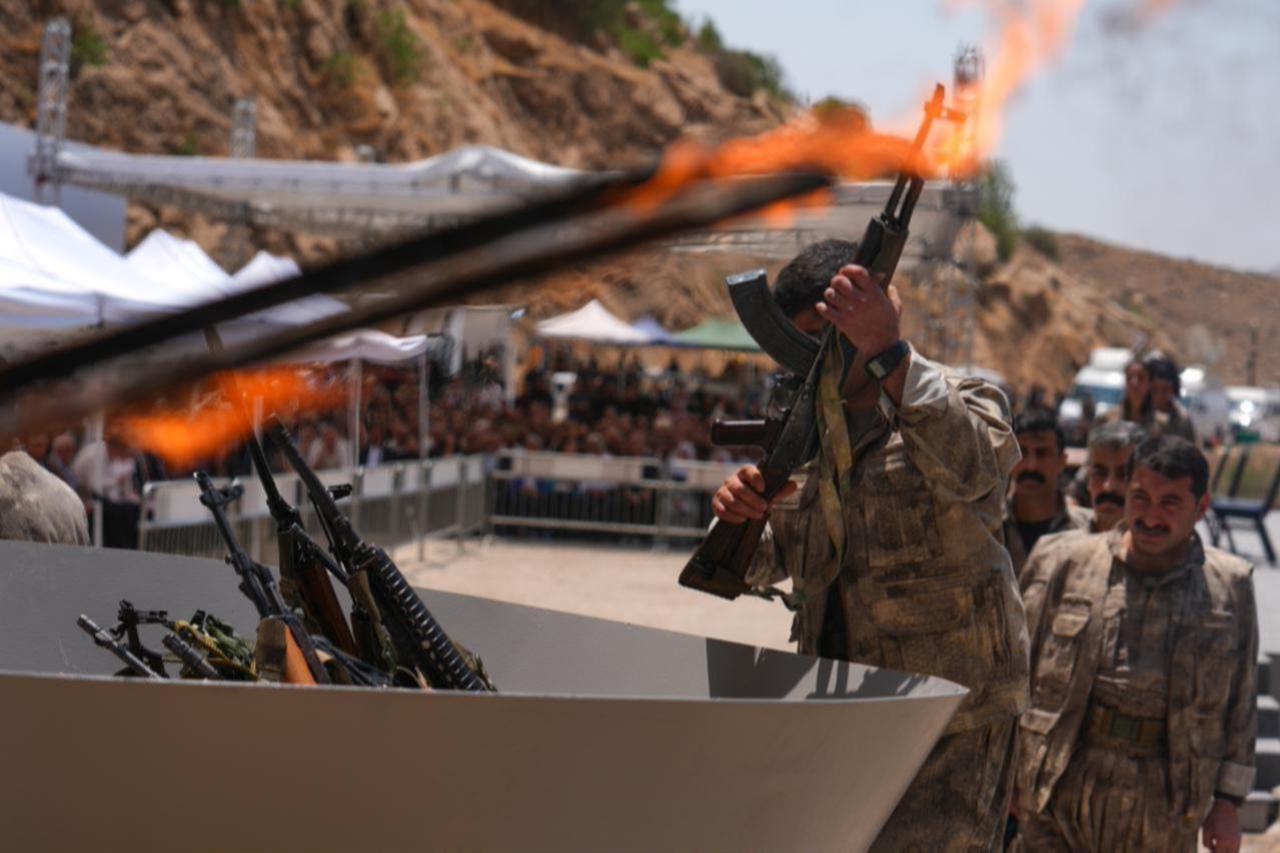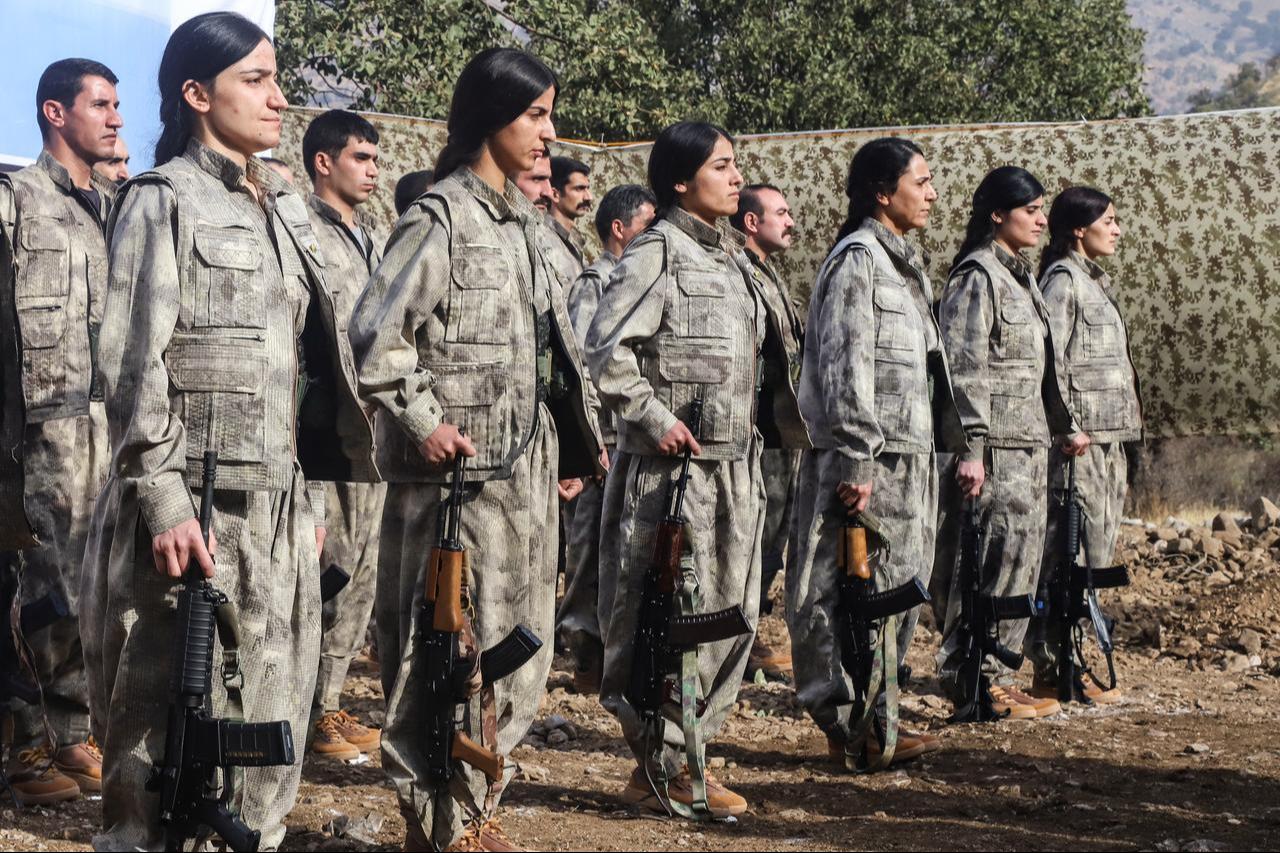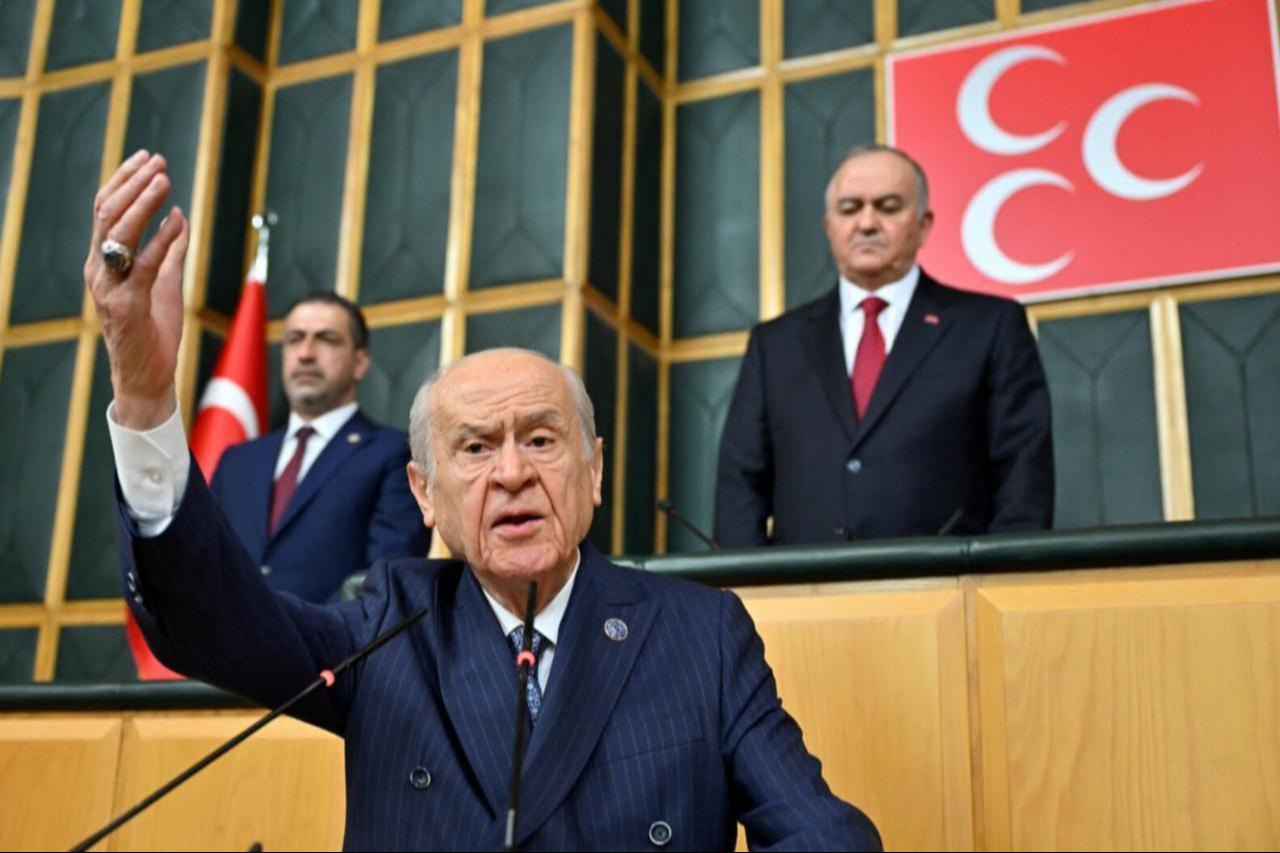
The PKK terrorist group announced that it has completely pulled out of the Zap region in northern Iraq, marking one of the most significant developments since it formally renounced its armed struggle earlier this year.
The step is described as part of broader efforts toward a “terror-free Türkiye.”
In a statement the PKK said its fighters left the Zap area “as of the evening of November 16,” adding that the risk of conflict there had been “completely eliminated.”
It called the withdrawal a “significant practical contribution” that demonstrates its commitment to ongoing efforts to reset relations with Ankara.
It said the move would contribute to resolving the Kurdish issue and support “peace and democratisation of Türkiye.”

The Zap region, a rugged and strategically important area near the Turkish border, is symbolically significant for the PKK as the site where its headquarters was originally established before moving to the Qandil Mountains.
The withdrawal follows several key milestones in the PKK’s declared transition away from armed struggle.
Earlier in the year, it announced its dissolution after four decades of violence. In February, jailed PKK founder Abdullah Ocalan urged militants to embrace democratic methods.
In July, the PKK began publicly destroying its weapons in a ceremony held in Iraq’s Sulaymaniyah province. The event, coordinated by Turkish intelligence, included a delegation from Diyarbakir as well as DEM Party members and civil society representatives.
Among those who laid down arms was senior PKK figure Bese Hozat.
It said it completed the destruction of weapons and subsequently moved all remaining fighters from Turkish territory into northern Iraq before withdrawing from Zap.

Zap has been one of PKK’s most entrenched strongholds, frequently targeted by Turkish airstrikes and previously subjected to a ground operation in 2008.
A local resident told Agence France-Presse (AFP) the area is sparsely populated, with only militants, Turkish soldiers and seasonal shepherds present.
The mountainous landscape made access difficult, and at times PKK used drones to transport food and clothing to its fighters.
Türkiye has established a cross-party parliamentary commission to support the peace process and work on a legal framework for political steps involving PKK members.
The government has highlighted developments in Zap as a concrete indicator of progress in efforts toward a long-term settlement.
PKK said it now aims to continue a democratic struggle for Kurdish rights in line with Ocalan’s guidance from his prison cell, where he has been held in solitary confinement since 1999.